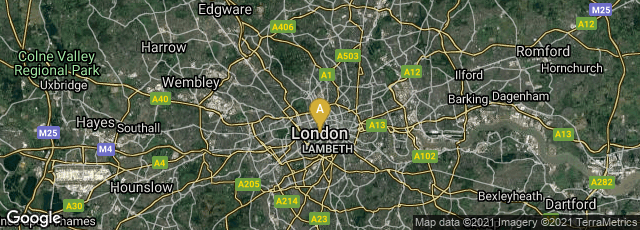

A: London, England, United Kingdom
Under Henry VIII the Parliament of England passed (34 & 35 Henry VIII, c. 1) The Act for the Advancement of True Religion, which restricted the reading of the Bible to clerics, noblemen, the gentry and richer merchants. Women of the gentry and nobility were only allowed to read the Bible in private.
The Act forbid the reading of the Bible in English by "women, artificers, apprentices, journeymen, serving-men of the rank of yeoman and under, husbandmen and laborers".
"The Act allowed moral plays to be performed if they promoted virtue and condemned vice but such plays were forbidden to contradict the interpretation of Scripture as set forth by the King.
"The Act claims that 'malicious minds have, intending to subvert the true exposition of Scripture, have taken upon them, by printed ballads, rhymes, etc., subtilly and craftily to instruct His Highness' people, and specially the youth of this his realm, untruly. For reformation whereof, His Majesty considereth it most requisite to purge his realm of all such books, ballads, rhymes, and songs, as be pestiferous and noisome'. However, the Act also commanded that 'all books printed before the year 1540, entituled Statutes, Chronicles, Canterbury Tales, Chaucer's books, Gower's books, and stories of men's lives, shall not be comprehended in the prohibition of this Act' (Wikipedia article on Act for the Advancement of True Religion, accessed 12-27-2009).
That there was need for such an act indicates that reading was relatively widespread in England at the time.
Hirsch, Printing, Selling and Reading 1450-1550 (1967) 94.